Taliban Calls For Collaboration With Iran Amid Tension
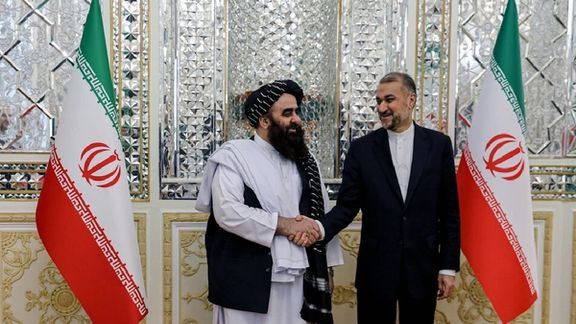
The Taliban's foreign minister, Amir Khan Muttaqi, advocated for enhanced economic collaboration during his visit to Iran.

The Taliban's foreign minister, Amir Khan Muttaqi, advocated for enhanced economic collaboration during his visit to Iran.
Muttaqi engaged in discussions with economic activists from both Iran and Afghanistan on Tuesday, encouraging Iranian traders “to seize the opportunities present in the Afghan market.”
Muttaqi emphasized Afghanistan's agricultural potential, fertile soil, clean water, and valuable mines, highlighting the mutual benefits of investments from neighboring countries like Iran.
Claiming that the Islamic Emirate swiftly improved security, Muttaqi cited a local trader's observation that before the Taliban, 20% of benefits were spent on security, which has significantly reduced under the new administration.
Expressing determination to transform Afghanistan into a regional transit hub, Muttaqi underscored the country's evolving role in transit and its growing economic centrality.
He also claimed that the government has an impartial stance on religious matters, asserting respect for all individuals, irrespective of Sunni or Shiite affiliations.
However, tensions persist between Iran and the Taliban, particularly regarding water issues. An Iranian parliamentary delegation visited Kabul in August to address concerns about the Taliban obstructing the Helmand River flow, impacting Iran's Sistan and Baluchestan region. The Taliban denies the allegations, intensifying the water crisis dispute.
Recently, critics of the Iranian government have cautioned against its open borders policy, expressing concerns about a potential hidden agenda. In response, hardliners accuse critics of fueling "Afghanophobia" amidst rising anti-Afghan sentiments on social media and instances of violence against immigrants.
Some critics speculate that authorities might be encouraging illegal Afghan immigration to address population decline or even to bolster the military by recruiting young Shiite Hazara Afghans. The situation reflects the complexities and challenges arising from the evolving relationship between Iran and Afghanistan.
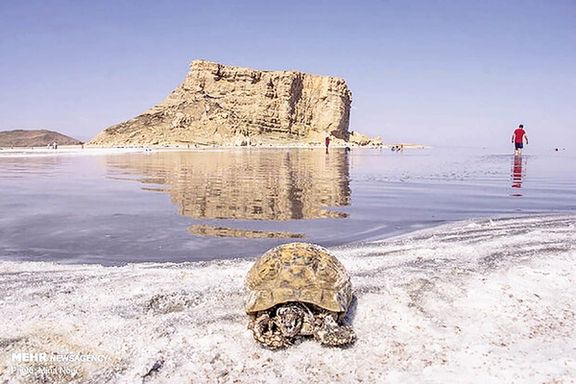
Iran’s Environment Department has denied any involvement of the Chinese in lithium extraction from Lake Urmia.
This follows the circulation of images on social media depicting trucks on the desiccated lakebed. The Director of Environmental Protection in West Azarbaijan, Saeed Shahand, has claimed that the activities in question solely pertain to “salt extraction, not lithium.”
Earlier reports had said that Chinese companies were acquiring brine from Lake Urmia with the aim of obtaining valuable lithium, which can be used to support the country’s nuclear program.
However, officials allege that the lake lacks lithium, underscoring the ongoing authorized extraction of salt from specific areas.
Shahand affirmed that the extraction of salt from Lake Urmia has been a long-standing practice, spanning years, claiming that it has not led to any adverse environmental consequences in authorized areas.
Researchers have sounded a cautionary note, warning about the potential repercussions of salt extraction and disturbance to the lakebed. Pertinent questions have been raised regarding research into the impact of salt compounds in Lake Urmia on plants, humans, and agricultural fields.
The ongoing drying of Lake Urmia, once the region’s largest lake, is causing growing concern among environmental experts who fear its far-reaching effects on various regions of Iran in terms of both environmental and human impacts.
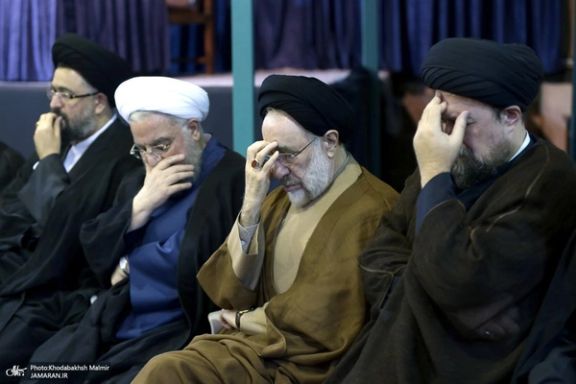
A leader of Iran's Reform Front, an umbrella organization of reformist parties and groups says only 7 percent of Iranians approve of the country's current situation.
Mohsen Armin, the front's vice chairman has quoted the results of an opinion poll conducted by ISPA of the government-owned Iranian Students New Agency (ISNA) and said 48 percent of Iranians support reforms and another 45 percent want far-reaching changes. In the context of Islamic Republic's political jargon, the latter group are possibly those who want a regime change.
Armin, speaking at a conference in Esfahan entitled "Iran, Reformists, and National Interests," stated that reforms in Iran are currently in a state of isolation. He elaborated that "The country is so disorganized that other political groups are also confused and do not know a way out of the current political impasse."
He said, "our mistake during the 1979 Islamic revolution was that we thought the Shah was the problem. But the real problem was the despotic regime. We thought that by replacing the Shah the problem will be solved. That is how we lost a precious opportunity to improve the political situation in Iran."
Armin emphasized that there has been a misconception in Iran that combating Western civilization is a prerequisite for Islamizing society. This belief has given rise to notions such as the imminent downfall of Western civilization, a stance that aligns with creating an Islamic society. Support for Russia in the Ukraine conflict and reluctance to finalize nuclear agreements with the West are byproducts of this ideology. Consequently, policies like the resistance economy and opposition to maintaining ties with advanced Western nations have emerged to promote Iran's development.
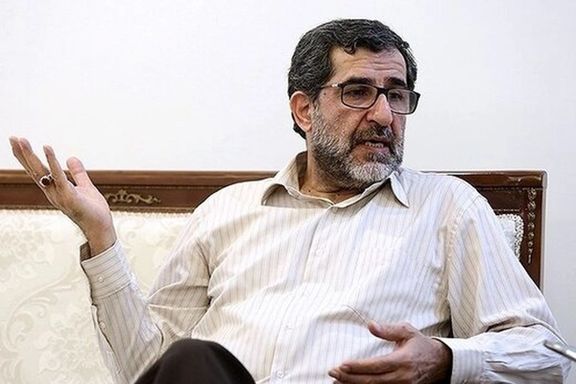
"Nonetheless, when survival becomes the regime's main objective, even ideology ceases to be a priority," Armin said, adding that the strategy of survival calls for barring all those who object to these policies by any form of political activity. He further said that the strategy of survival has led to the emergence of a system that is incapable of solving the country's problems and preventing systematic corruption. He also pointed out that the regime has failed to convince the public about its strategy while it also refuses to listen to reformist ideas that might help it.
Elsewhere, but along the same line, Iranian academic Bijan Abdolkarimi has warned that the underprivileged people in Iran are facing a death and life issue. He said in an interview with Etemad Online that there is a possibility for social upheavals in Iran. He explained that the middle class in Iran has been experiencing a process of decline and many middle-class citizens are now considered low-income as their purchasing power has shrunk.
Iran has been experiencing an annual inflation rate of at least 40 percent in the past three years, and the national currency has lost its value 12-fold since 2018.
Abdolkarimi pointed out that while the middle class has been losing its dreams and sees no bright prospect ahead, family members of some regime officials, who talk about confrontation with the United States, live in America. The latter group do not really believe in the revolutionary narrative but hypocritically defend the revolutionary "values," the academic added.
He pointed out that Iranians are not interested in taking part in the upcoming parliamentary elections because they believe their participation cannot change the country's situation. At the same time, a force from within the government has been exerting pressures on the regime to follow a strategy of political purification that is intended to lead to the creation an all-conservative ruling system.
He said the Islamic revolution has not been able to offer welfare to nation during the past four decades and it is not likely to find that capability anytime soon.
Meanwhile, former President Hassan Rouhani has said in a meeting with his former aides and cabinet minister that the country's only way out of the current political impasse is to start reforms. Rouhani further claimed that the people will take part in the election if they feel that it can make a difference.
Many political figures in Iran, who are considered regime insiders, including former reformist President Mohammad Khatami have said that it appears the Iranian regime can no longer be reformed.
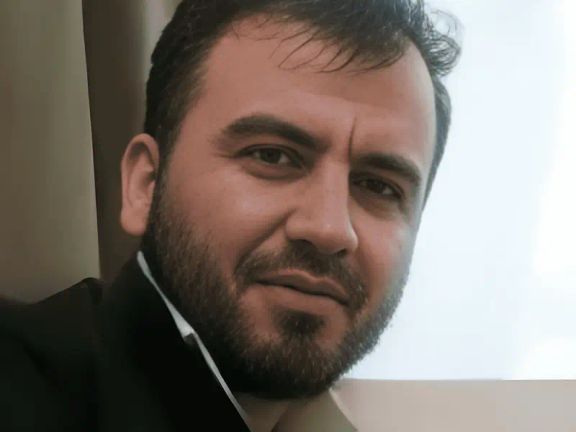
Iranian Kurdish political prisoner Davoud Abdollahi was executed on Tuesday morning in Karaj's Ghezel-Hesar Prison amid ongoing persecution of the minority.
Abdollahi, imprisoned for 14 years, had been on a hunger strike since December 26 in protest at his being moved to solitary confinement for the execution.
Alongside six other Kurds – Qasem Abasteh, Ayoub Karimi, Anwar Khezri, Farhad Salimi, Kamran Sheikheh, and Khosrow Besharat – Abdollahi was detained in December 2009 on charges related to the murder of Abdolrahim Tina. Months of interrogation followed in the intelligence detention center in Urmia.
The charges against the seven individuals included "acts against national security," "propaganda against the system," "membership in Salafi groups," and "waging war against God and corruption on earth."
They were initially sentenced to death in 2017, but the Supreme Court overturned the verdict and referred the case to Branch 15 of the Revolutionary Court in Tehran for review. However, in June 2018, Branch 15 issued another death sentence for them.
The Supreme Court confirmed the death sentences in February 2020. Qasem Abasteh was executed on November 6, and Ayoub Karimi's death sentence was implemented on November 29. With the execution of Abdollahi, four others are currently at risk of execution.
Human rights organizations have repeatedly condemned the severe torture inflicted upon these prisoners and the extraction of forced confessions. Amnesty International warned in February 2021 that the seven Sunni Kurds were at risk of execution, stating that their trials were extremely unfair and based on confessions obtained under torture.
It is part of a massive execution wave in Iran. In the latest annual report, Human Rights Activists In Iran (HRANA) claimed the execution of 746 individuals, noting a 32 percent increase of executions from 2022 and death sentences issued rising by 68 percent.
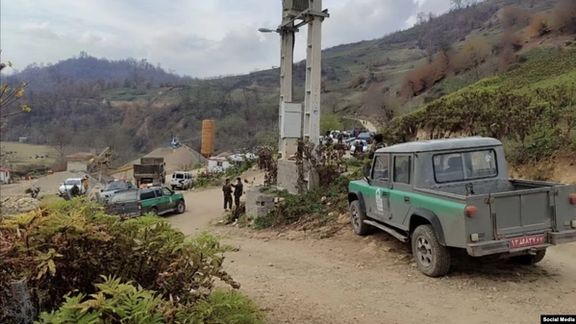
About 200 security personnel have stormed the village of Ahmadabad in northern Iran, confiscating nearly 40 hectares of Baha'i-owned lands.
According to reports, on Sunday, personnel from the Natural Resources Organization, accompanied by dozens of special unit officers and intelligence forces, conducted a raid on Ahmadabad village.
The officers seized mobile phones from village residents, preventing them from communicating and capturing footage. Since Sunday evening, the local inhabitants have been prohibited from moving in and out and the roads have been blocked, impeding the movement of local residents.
Reports indicate that the security forces intensified their actions on Monday, targeting the agricultural lands and fields of the villagers.
A statement was issued by 147 political and civil activists condemning the recent wave of ruthless suppression by the Islamic Republic. Prominent figures such as Mehrangiz Kar, Mansoureh Shojaee, and Reza Alijani are among the signatories.
They highlight the systematic deprivation of Baha'is' civil rights under the religious dictatorship, citing issues such as the lack of basic rights like marriage registration, education, and employment. The statement also condemns the forced displacement of some Baha'is to desolate areas, the seizure of properties belonging to impoverished Baha'i villagers, and arbitrary detentions and harsh judicial sentences based on unfounded and false accusations.
Unofficial sources estimate that over 300,000 Baha'is live in Iran. However, the Islamic Republic's constitution officially recognizes only Islam, Christianity, Judaism, and Zoroastrianism.
Baha'is constitute the largest religious minority in Iran and have been systematically targeted for persecution since the 1979 revolution and the establishment of the Islamic Republic.
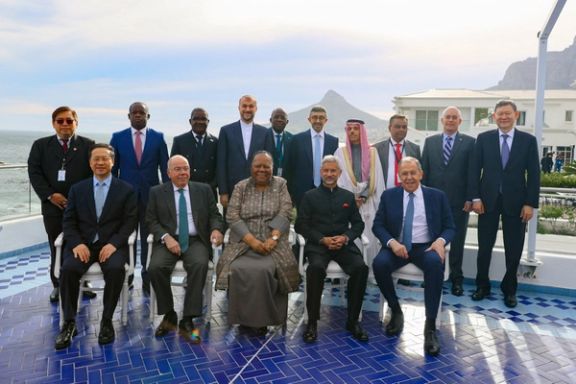
Iran officially became a member of the China-led BRICS economic organization on Monday, as it seeks to overcome the impact of US sanctions and overcome it isolation.
In its policy of finding shelter under Chinese and Russian-dominated international organizations, Iran achieved full membership in the Shanghai Cooperation Organization in July 2022 and concurrently pursued entry into the BRICS group. Following an official invitation, Iran announced its acceptance into BRICS on August 24, 2023, with the official membership commencing on January 1, 2024.
Iran's Foreign Ministry spokesman, Nasser Kanaani, announced the news on Monday as an important achievement for Tehran, emphasizing the potential for economic potential BRICS can offer. Ehsan Khandouzi, Iran's Finance and Economic Affairs Minister, expressed hope for global engagement and for increased trade opportunities with BRICS countries, despite US sanctions.
Iranian officials, who feel the need to calm domestic anxieties about the economic crisis gripping the country since 2018, routinely tell citizens that BRICS could challenge the dominance of the US dollar, and alleviate the financial crisis brought about by the US sanctions. Despite these assertions, domestic markets know that the Chinese themselves heavily rely on the US dollar for trade. Lack of confidence in the foreign and economic policies of the government has played a major role in the 12-fold devaluation of the Iranian rial against major currencies since 2018.
In Iran’s domestic political dynamics, BRICS is presented as a mechanism and an opportunity to challenge the United States and boost trade.
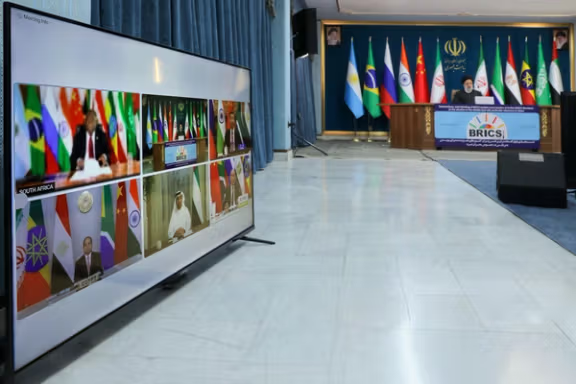
Despite these perspectives, skepticism remains about the practical benefits of Iran's BRICS membership, especially concerning economic implications. Geopolitical tensions, such as Russia's invasion of Ukraine and China's strained relations with the United States, complicate BRICS' role as a counterweight to the West.
During the BRICS summit in August 2023, Iranian President Ebrahim Raisi and Chinese President Xi Jinping emphasized bilateral cooperation and opposition to “American unilateralism.” While some individuals are optimistic, Tehran observers doubt practical benefits, emphasizing the need to address relations with the US and resolve the dispute about Iran’s nuclear program for meaningful membership impact. Former UN diplomat Kourosh Ahmadi has warned against illusions about potential benefits from SCO and BRICS, suggesting such beliefs could be more harmful than not being members at all.
Challenges
Not all BRICS members may be equally enthusiastic about Iran's inclusion, and not every existing member supported Iran's decision to join. Additionally, the impact of US secondary sanctions, restricting Iran's global business activities, may not be substantially alleviated by BRICS participation, especially given the organization's alignment with China and Russia, both with their own serious economic challenges and disputes with the West.
Nevertheless, Iran's energy sector is expected to experience significant changes with BRICS membership, particularly due to its major role in gas and oil production. Joining BRICS is seen as a strategic move to enhance energy trade and collaboration, especially with China and Russia. Anticipated benefits for Iran include increased energy exports, investment in energy infrastructure, and potential relief from US sanctions through the use of national currencies in energy trading.
While Iran aims to leverage BRICS membership to weaken sanctions, boost its economy, and access broader markets, experts caution that economic gains may be limited without a nuclear deal with the West. The uncertainties about the effectiveness and cohesion of BRICS policies also raise questions about the immediate and long-term benefits of Iran's membership.
Financial Action Task Force (FATF)
The Financial Action Task Force (FATF), a global monitor on money laundering, announced on Friday that it has made no modifications to its blacklist, which includes Iran, Myanmar, and North Korea. Iranian economist Mohammad Mehdi Behkish has emphasized potential difficulties in business transactions with BRICS countries if the FATF issue is not resolved. He has also underscored that, despite additional countries joining BRICS, the economic significance of the United States to China will surpass that of all BRICS nations, emphasizing the necessity of easing financial restrictions for Iran to fully benefit from BRICS membership.
It is claimed that Iran's membership in BRICS represents a strategic alliance with China and Russia, with opportunities for enhanced infrastructure investment and commerce. The goal to change the dynamics of the global energy market and lessen reliance on the US currency in energy-related transactions is supported by China and Russia. Higher energy exports and the possible use of national currencies as a hedge against US sanctions are anticipated benefits. However, Iran or any other country, needs revenues in hard currencies for most imports, and replacing the US dollar in energy exports does not seem to be a wise policy.
Moreover, considering the significant trade volumes they maintain with the United States, some BRICS members would be reluctant to take on economic risks in their dealings with Iran. This complicated situation highlights the numerous difficulties and factors that go along with Iran's involvement in BRICS, calling for a systematic and careful strategy to deal with these complications.